#not to sound like Casablanca but... we will always have Phase 1 and 2
Explore tagged Tumblr posts
Note
Hey!!
I am so glad you liked gotg 3 i just came back from the movies the moment the movie ended i got hit by nostalgia tbh it's been such a long time since I've liked a marvel movie that the charcaters were actually more or less IN CHARACTER (side eyes Waldron's shitty takes)
However i sort of felt like well ... This is it. i don't think any of the new writers even the "expensive once" marvel claims to now work with really produce anything remotely close in terms of characterization
Idk it was just kinda depressing that instead if enjoying the movie i launched myself into a state of mourning for all my beloved characters that got assassinated by shitty writing 😂
Hey there! OMG I know exactly what you mean.
Don't get me wrong, Wakanda Forever was absolutely amazing but GoTG3 was the ending to a team we had known for 9 years and given recent movies and series from Marvel it's such a breath of fresh air to see something where the characters are consistent, the story is completely focused on them and the rest of the MCU universe doesn't get in the way. It feels like a complete outsider in the Marvel roaster: it's 100% a Gunn movie and not Feige's.
And then you look at future movies/series and... there's nothing like it on the horizon. I don't mean to say nothing good will come in the future because some of the movies and series look nice but everything that comes now has the Marvel brand plastered all over, it's not a personal story like the Guardians was for Gunn. And Phase 5 started with Quantumania... do I need say more 🤦♀️
So I completely understand what you mean. Look at me, 3 favourite characters and all 3 ruined mercilessly by Marvel (well, 2 and a half. Stephen is still standing thanks to Ben, poor thing). There's still a chance we might see something good, so I'll stick to the trailers and hope that when Iger said they were going to delay some stuff and take a look at what they're doing that was more than a marketing campaign 🙏
#guardians of the galaxy#james gunn#mcu critical#not to sound like Casablanca but... we will always have Phase 1 and 2
12 notes
·
View notes
Text
Puppy Eyes Chapter 18
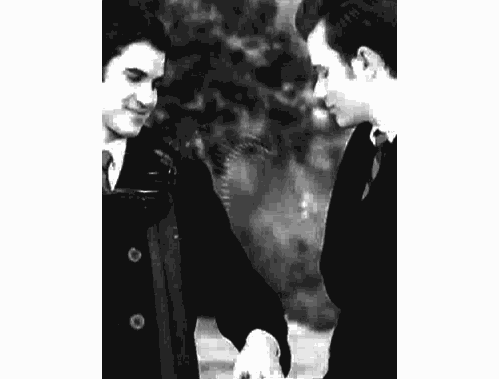
Nope, no smut yet, sorry, only more schmoop and fluff...
Thank you so much to everyone who sends me feedback - you’re wonderful and you spur me on to keep writing :-)
This story is also on AO3 and on Fanfiction.net.
The other parts can be found here: Prologue - Chapter 1 - Chapter 2 - Chapter 3 - Chapter 4 - Chapter 5 - Chapter 6 - Chapter 7 - Chapter 8 - Chapter 9 - Chapter 10 - Chapter 11 - Chapter 12 - Chapter 13 - Chapter 14 - Chapter 15 - Chapter 16 - Chapter 17
Chapter 18: A Lot of Firsts
When Kurt had to leave for a dog walking assignment later that evening, Blaine felt a prickle of dread. Blaine had declared himself now, and handed Kurt his heart for safe-keeping. Did Kurt believe him? Did he want to be with Blaine? Kurt wasn’t going to slip out of his life again, was he?
Blaine didn’t want to seem clingy, but he also didn’t want to let Kurt walk away without any reassurances on this matter, so he offered to come with Kurt and help him walk the dogs.
It wasn’t until Kurt pointed it out that Blaine realised he was still naked from the transformation. It cracked the both of them up, and that bout of merriment instantly made Blaine feel better. He dressed quickly, and held Kurt’s hand all the way to the dogs’ homes and then to the park. It felt amazing. He sneaked a few glances at their joined hands, grinning happily, and that grin only widened when he caught Kurt doing the same.
“I love you,” he said, the words tumbling out of their own accord for the millionth time that day, yet Kurt’s eyes lit up as beautifully as if it were the very first.
When Blaine gave Kurt the unicorn brooch and the accompanying letter, he got the reassurance he’d been craving. The letter made Kurt tear up and reel Blaine in close, murmuring that Blaine was the one for him too.
Blaine didn’t check if anyone was around before taking Kurt’s face in his hands and kissing him like his life depended on it.
Kurt drew away a few times to gulp in fresh air, and each time Blaine chased his lips as if Kurt provided the only oxygen he needed.
Blaine didn’t know how much time had passed when they finally remembered the dogs and took them back home, but he did know it wasn’t long enough by far.
Kurt was dog-sitting, so Blaine knew he couldn’t come back to Blaine’s apartment. But maybe Blaine could come with him? He needed to be close to Kurt. Preferably till death did them part, but he’d settle for right here right now.
Kurt seemed hesitant about letting him stay over, so Blaine gave him his most beseeching look. The one that even Pam had never been able to say no to.
“You don’t play fair,” Kurt grumbled as they walked towards the apartment where Kurt was staying.
Blaine, happy as a lark now, beamed at him. “All’s fair in love and war, beautiful.”
Kurt shot him a quick look, and a corner of his mouth ticked up. “Is that going to be my pet name from now on? What happened to ‘honey’ and ‘sweetie’?”
Blaine shrugged. “Those are generic, and I use them for everyone. You deserve a special name just for you. And ‘beautiful’ suits you.”
That made Kurt blush, and Blaine just had to kiss him again because he was so adorable.
It wasn’t until they were lying in bed that Blaine initiated phase two of his wooing plan, and asked Kurt out on a date. He fist-pumped when Kurt said yes, and nodded off contentedly.
Then Kurt’s voice jolted him awake again. “Just so you know, we have an appointment at The Sweetest Thing Bakery tomorrow at four p.m. Make sure you include that in your date plans.”
“You rescheduled? Mrs Peters wasn’t angry that we missed our appointment?”
Kurt chuckled. “I pretended that you’d written the date down wrong.”
“Clever!” Blaine praised him. “I’m glad. She has the best reviews. And the best designs.”
“And hopefully scrumptious caaaaaake,” Kurt yawned.
“Sleep, beautiful.”
“Sweet dreams,” Kurt slurred, and then laughed, “because of the cake, geddit?”
He turned on his side, his head on Blaine’s chest, and was out like a light.
Blaine kissed the crown of his head. For a few minutes, he basked in the feeling of having Kurt with him again. Then, he started going over his date options. Their first date had to be perfect.
K&B
Of course, mandating that the date had to be perfect jinxed it. From the moment Blaine woke, he knew he’d have to adjust his plans. He’d counted on cold but dry weather, not the rain and cold wind that assaulted him as soon as he opened the window in the kitchen. That meant the walk through Central Park was out. Bummer.
Blaine busied himself making Kurt a delicious breakfast, making sure it would be ready by the time Kurt’s alarm clock went off, but Kurt didn’t even spare the breakfast tray a passing glance when he rushed past Blaine mumbling, “Dogs to walk. Back in half an hour!”
Blaine looked down at the tray he was holding and sighed. By the time Kurt got back, the eggs would be a congealed mess, the toast would be unappetizing, the fruit salad would no longer look fresh but brown at the edges, and the mocha would be ice-cold.
Oh, all right then.
Blaine sat down at the kitchen table and ate the breakfast intended for Kurt, grimacing when he drank the mocha, which was much too sweet for his taste. After that, he showered and dressed, and then made a new breakfast tray, timing it so that it was ready just when Kurt was due back.
Kurt and the poodles returned in the best of spirits, despite the weather, and now Kurt did notice the tray. “You made me breakfast? Oh, you’re the BEST! I’m starving! I forgot to make myself sandwiches yesterday.”
Kurt kissed Blaine square on the mouth before sitting down and wolfing the whole meal down in five minutes flat.
Then, he looked up at Blaine expectantly. “So what are your plans for today?”
“Still raining?” Blaine asked, and Kurt nodded.
“I guess a romantic walk in the park is out, then,” Blaine mused, and Kurt laughed as if Blaine had made an excellent joke.
Blaine praised himself lucky that he’d asked Ashton if there were any good exhibitions in the NYC museums. At least he had that to fall back on.
He looked up, meaning to tell Kurt they were going to the Met, but Kurt had disappeared. His bowl and plate stood in the sink, already rinsed, and his voice floated out of the utility room, singing a French song.
Blaine distractedly petted one of the poodles while letting Kurt’s singing wash over him, and then started on the dishes.
An hour later, Kurt and Blaine were on their way to the museum. Blaine had first stopped by his own apartment for Kurt’s present of the day. He’d had an umbrella made with the same puppy pattern as the book bag, and Kurt could really use that in this weather.
Kurt exclaimed over the umbrella, calling it über-cute. Outside, he opened it and offered Blaine his arm.
Blaine had never shared an umbrella with anyone before, and found it cosy and intimate. The wind still howled, and the rain still beat down on them, but the umbrella was sturdy enough to provide shelter, and the heat from Kurt’s body was a welcome solace against the biting cold.
When they reached the Met, the queue at the entrance made Blaine’s heart sink. He knew that Monet always drew a crowd, but this was simply ridiculous. They’d be queuing for hours, and in this inclement weather, standing still for so long wasn’t an appealing prospect.
He ran through Ashton’s other suggestions, and flagged down a cab to take them to the Museum of Natural History instead. The exhibit there was about newly discovered deep sea creatures, and when a class of third-graders came by with a guide, Kurt’s eyes shone and he followed them, soaking up every bit of information the guide doled out.
Kurt was keen to discover the rest of the museum too, and in the end, he only let himself be led out of the museum when his stomach started growling.
“We can always come back another day,” Blaine promised him.
Blaine looked at the overcast sky and chose a nearby sushi restaurant for lunch. It still wasn’t close enough for them to escape a sudden rain squall that drenched them in seconds, and they ran the last few yards, Kurt squealing and trying to protect his hair when the wind blew his hood off.
They stumbled into Gari of Columbus with dripping coats and squeaking shoes, laughing and shivering a little. In the restaurant, it was toasty warm, though, and Kurt slipped into the restroom to try and fix his hair.
“Ugh,” Kurt said when he came back. “I can’t get it into a decent coif. You’ll have to make do with the hairstyle I had when I was a sophomore in high school. Floppy bangs and all.”
Blaine smiled at him and cupped his cheek to give him a kiss. “You do look younger this way. But just as beautiful.”
After lunch, Kurt had to head back to the place he was staying to pick up the poodles for their midday walk, and then a few other dogs as well. Blaine grinned when Snowball and Summer greeted him enthusiastically. It was still raining, but Blaine hardly felt it as he ran with the dogs. Kurt flashed him a happy grin and upped his pace a notch.
After their run, Kurt was shivering again. Blaine hunted for a blanket in the apartment and wrapped Kurt in it, installing him on the sofa and hurrying to the kitchen to make them both tea. When he came back into the living room, Kurt was watching Casablanca, and stretched his arms out towards Blaine. Blaine offered him a cup of tea, and chuckled when that made Kurt pout. “So impatient, beautiful.”
Blaine kissed Kurt’s pout away and sat down next to him, encircling Kurt’s waist and sipping his own tea.
“So where is The Sweetest Thing bakery?” Kurt asked. “We have to make sure we’re on time today.”
Blaine beamed at him. “It’s not far, beautiful. Four blocks or so. So you can drink your tea and watch Humphrey and cuddle me and get warm again. Plenty of time for that.”
Kurt’s answering smile was wide and toothy, and he wiggled a bit closer still. “That sounds perfect.”
They arrived at The Sweetest Thing bakery twenty minutes early, and Kurt used the extra time to inspect the shop window. “I see what you meant about the best designs. These cakes are gorgeous. If they’re yummy, too, I’m sold.”
A gust of wind made them both head inside the shop, and they told the sales assistant that they had an appointment with Mrs Peters.
“Anderson-Hummel?” she asked.
“That’s us,” Blaine confirmed, and he felt Kurt squeeze his hand.
“What is it, beautiful?” he whispered, and Kurt blushed and whispered back, “I like that there’s an ‘us’ now.”
The girl behind the counter cooed. “Aww, you’re too adorable. Have you been together long?”
“Nearly a year and a half,” Kurt lied glibly.
“And you’re already engaged? Wow, I’ve been seeing my man for five years and not a peep about marriage!”
Blaine gave her his most disarming smile. “When you know, you just know.”
A voice behind him made a retching noise, and then hissed, “You disgusting fags, why don’t you get out of here before I break your neck!”
Blaine whipped his head around and saw a burly middle-aged guy, red-faced and looking furious.
Before he could say or do anything, Kurt retorted, “Why don’t you back to the Middle Ages, where you belong? Last I checked, gay marriage was legal. We have as much right to buy our wedding cake here as you do.”
The guy came closer, his hands reaching for Kurt’s neck. Blaine quickly got in front of Kurt and took on a fighting stance.
“Cut this out RIGHT NOW,” a woman commanded.
Blaine recognised Mrs Peters’ voice, but didn’t take his eyes off the angry guy.
“Mr Miller, if you have a problem with my clientele, I suggest you go elsewhere. I’m not having this kind of scene in my shop.”
Mr Miller looked at Mrs Peters, affronted. He’d clearly expected her to side with him. “Oh, fine. Your cakes suck anyway.”
He strode out of the shop and banged the door with all his might.
“Good riddance,” said Mrs Peters. “Now if you two would follow me, please. Anderson-Hummel, right?”
“That’s us, ma’am,” Blaine said. He grabbed Kurt’s hand, and together, they followed Mrs Peters.
Soon after, Kurt was deep in discussion with Mrs Peters about the design he wanted on the wedding cake. He drew several versions on a napkin, and promised to send the baker a digital version of the design by the next day at the latest.
Then, it was time to taste-test the different cake flavours. Kurt took small nibbles and closed his eyes every time a new taste hit him, his brow furrowed in concentration. It made Blaine smile.
Kurt pronounced the chocolate delicious but too heavy, shook his head after tasting the red velvet and vanilla options, made a so-so gesture about the carrot cake, wrinkled his nose at the pink champagne cake, but lit up when he tasted the coconut and lime combo.
“This is it,” he whispered, “This is the perfect cake.”
Blaine nodded. “Okay.”
Kurt took another small bite and moaned. “No, seriously, it doesn’t get any better than this. So good.”
Mrs Peters laughed. “That’s settled, then. So I’ll write down coconut and lime for the cake, and your own design for the decoration. Do you have my e-mail address to send the file?”
Blaine assured her they had the address.
“And what’s the wedding date?” she wanted to know next.
Kurt and Blaine looked at each other.
“We haven’t decided on the venue yet,” said Blaine. “It depends which one we’ll go with. If we pick the Bowery Ballroom, it will be the 7th of June. If it’s at the NY Public Library, it will be on the 14th of July. And the date for the Loeb boathouse is 9 September.”
Kurt cocked his head to the side. “I thought we’d decided against the Loeb boathouse? It’s going to be either Bowery or the Library, Mrs Peters. We’ll let you know as soon as possible. We’re visiting both places again next week, and then we’ll decide.”
Mrs Peters made Blaine repeat both dates and jotted them down with a question mark behind them.
As they filed out of the back room, Mrs Peters put a hand on Blaine’s arm.
“Hey…” she said. “Don’t mind that guy, please. Don’t you worry your pretty head about him. Your fiancé is right. Love is love, and it doesn’t matter to me that you’re two men. It shouldn’t matter to anyone. It’s nobody’s business but your own.”
Blaine swallowed and tried to smile, but it probably came out more like a grimace. “I’ll go pay the deposit at the counter, then.”
Nothing like striking while the iron was hot, so Blaine called both wedding venues to ask if he could come by again, this time with his fiancé. For the Bowery Ballroom, he made an appointment for Monday evening. There was no appointment needed for the New York Public Library. “We’re open until 5.45 today, sir.”
That gave them a little over an hour to go discover the place, so they took a cab there. As soon as Kurt entered the building, he seemed to be vibrating with excitement, and that enthusiasm increased with every detail he pointed out to Blaine, in reverent whispers. They stayed until the library closed, and as they went down the steps, Kurt told Blaine, “This is the right place for us. I can feel it in my bones. We can go check out the Bowery, too, but I don’t think I’ll change my mind. I see us getting married here.”
They picked up Thai take-away on their way back to the place where Kurt was staying. After eating, they took out the dogs for their evening walk, and then curled up on the sofa again until it was time for bed.
When Kurt laid his head on Blaine’s chest, Blaine blurted out, “I’m sorry our first date was such a mess. I wanted it to be perfect, but it all went wrong.”
Kurt raised his head. “Blaine, what are you talking about? There’s nothing about today that I would have changed. To me, it was perfect. A wonderful first date. I couldn’t dream up a better one if I tried.”
“B-but the weather…”
“I loved that it rained. That meant I got to share an umbrella with you. That was so romantic. I’d never done that before.”
“Me neither,” Blaine confessed.
Kurt beamed. “I like sharing firsts with you. I want us to share a lot of firsts. I couldn’t give you my first kiss ‘cause that one got stolen, but the rest of my firsts are all yours.”
Blaine smiled tremulously and pecked Kurt lightly on the lips, but then went back to his grievances about the day. “And I meant for us to go to the Met, but the queue was too long.”
“Aww, Blaine. The Natural History Museum was a much better choice. I loved it there!”
“And your hair got wet!”
“Yep. Yours too, and you looked so sexy with wet curls. I wanted to grab you right there and then and make out with you.”
“And then at the bakery, that guy nearly throttled you!”
“And you defended me, you brave knight in shining Armani.”
Kurt batted his eyelashes at Blaine and pouted his lips.
Blaine laughed and kissed Kurt.
When Kurt came up for air, he breathed, “Perfect. I’m telling you, perfect.”
48 notes
·
View notes
Photo
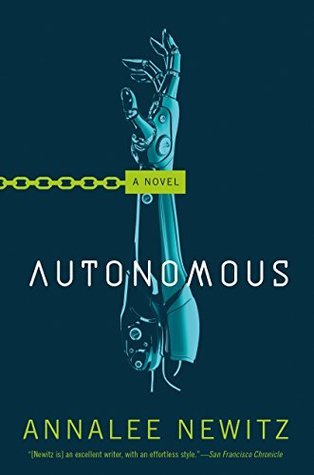
AUTONOMOUS BY ANNALEE NEWITZ
BY: NIALL HARRISON ISSUE: 11 DECEMBER 2017
1.
Medicine, medical research, and healthcare systems have always felt to me a little under-explored by SF. Every so often there's a small-press anthology, or some think tank-y futurism—such as this year's Writing the Future competition, organised by Kaleidoscope Health & Care—and on screen no starship is complete without its sickbay and doctor. But when it comes to more substantial SF, and in particular novels, the pickings seem slim. The two recent-ish examples that come to mind are Project Itoh's Harmony (2008, trans. Alexander O. Smith 2010), and Juli Zeh's The Method (2009, trans. Sally-Ann Spencer 2012): both are classically dystopian narratives that dramatise the totalitarian potential of excessive care. Beyond that, you have to look for more generally biotech-oriented stories that incorporate elements of healthcare politics, such as Stephanie Saulter's (r)egeneration series (2013-2015), or mainstream-published work that shades into the speculative, such as Jillian Weise's The Colony (2010) or Hanya Yanagihara's The People in the Trees (2013). The gap seems especially glaring when it comes to American genre SF, given the political prominence and immanently-dystopian quality of the American healthcare system, and its knock-on effects for global healthcare: to paraphrase William Gibson, the drugs are here, they're just not evenly distributed.
So Annalee Newitz's first novel, Autonomous, is welcome for building its narrative around the practicalities and morality of access to effective drugs, even if some of its choices are a little more confusing than you might hope. But we'll come to that. Setup first: towards the end of the present century, the global Collapse that looms in most of today's near futures leads to a realignment of the international order, away from nation-states and towards “economic coalitions”—of which the big players seem to be the Free Trade Zone that covers most of North America, the Asian Union, the African Federation, and the Eurozone—that represent near-total capitalist capture of governmental and public services. As a result, patent terms for new medicines have been extended to longer than a normal human lifespan; regulatory oversight of the clinical development process has been weakened nearly out of existence; drugs that enhance health and cognition are common and required for many jobs; and the pay-for-treatment US insurance model appears to have been extended to basically the entire world, leading to cascading generational inequality:
Only people with money could benefit from new medicine. Therefore, only the haves could remain physically healthy, while the have-nots couldn’t keep their minds sharp enough to work the good jobs, and didn’t generally live beyond a hundred. Plus, the cycle was passed down unfairly through families. The people who couldn’t afford patented meds were likely to have sickly, short-lived children who became indentured and never got out. (p. 55)
Enter Jack Chen, patent pirate. From a family of farmers, she moved into synthetic biology research, and then into open medicine activism, first as part of a group known as The Bilious Pills, then later and for decades as a solo artist. In July of 2144, we find her in the middle of the Arctic Ocean, charging up the batteries of her submarine and worrying over news stories about a bad batch of black-market pharma that might be her fault. In an attempt to raise funds to subsidise her “real work” making medically urgent antiviral and gene therapies freely available, Jack reverse-engineered and sold Zacuity, the hot new “productivity pill” made by Zaxy, which was “didn't just boost your concentration [but] made you enjoy work” (p. 14). Now there are stories in her feed about people with obsessive task addiction, starting with a student whose “brain showed a perfect addiction pattern [...] like she'd been addicted to homework for years” (p. 11). Before too long, Jack is on the run, attempting to find a cure for the people she's inadvertently hurt, while being pursued (in alternating chapters) by agents of the International Property Coalition.
Newitz's future, while perhaps not quite matching the likes of Lauren Beukes or Ian McDonald for sentence-level stylistic verve, is rich, varied, and consistently interesting; it's fun to roam from the Arctic to Casablanca to Vegas and on. But every now and then something doesn't quite ring true. The mildest of my eyebrow-raises were down to inconsistencies or ambiguities in terminology. If you tell me a drug is in “beta” (p. 29), I will assume a move-fast-and-break-things culture has replaced more rigorous medical research, unless and until you later start talking about phase 1 clinical trials: those two linguistic paradigms don't fit neatly together. If you refer to “cloned Zacuity” (p. 13), I will assume it is produced by a process in which cloning could plausibly be relevant; so it's probably a biologic, perhaps a cell therapy of some kind; but if you then talk about “isolat[ing] each part of the drug” and “narrow[ing] the questionable parts down to four molecules” (pp. 28-9) I will get thoroughly confused, since not only does that not sound like a cell therapy or biologic, it doesn't even sound like Zacuity is a single drug, but rather a combination of small-molecule treatments.
Above this, however, sit some practical and conceptual concerns. I can accept that the novel's characters believe that subversion of intellectual property law is the most practical solution to their crisis because they are living under total capitalism; but it is odd that nobody even laments the impossibility of a system that would centralise and pool healthcare costs. Socialism seems to have been thoroughly erased in the present, in memory, and in possibility. And I can accept that “Zaxy didn't make data from their clinical trials available”, but the corollary, “so there was no way to find out about possible side effects” (p. 14) seems a little dubious in what is evidently still a networked world easily capable of crowdsourcing that information. Then there's the underlying business model itself. It seems that the have-nots massively outnumber the haves, and while pharmaceutical companies are not perfectly rational economic agents, and have been known to push the limits of appropriate pricing for access to treatment, at a certain point charging x to a market of y patients becomes less profitable than charging a fraction of x to a multiple of y. Everything we learn about the world of Autonomous suggests that Zaxy and its competitors deliberately keep themselves on the wrong side of that equation. It's only Jack and her friends attempting to fill the market hole, and it's not clear why.
Why does such pedantry matter? Perhaps it doesn't. But Zacuity is presented to us as symptomatic of a system, a synecdoche for lost autonomy, the reduction of human lives to biological machinery. It's everything Jack has dedicated her life to fighting against. And for that fight to really matter, the symptom and the system need to feel crushingly inescapable; and they don't always.
2.
Or is there another way in? Autonomous explores its core theme on more than one front. It is a novel about seeking freedom in an owned world, and although the owners in the background don't always quite feel solid, their property is memorably thorny. Two pairings stand out in particular. Travelling with Jack is Threezed (3-Z, two syllables), a young indentured man she inadvertently rescues from his owner; pursuing them are two IPC agents, an enfranchised man named Eliasz, and an indentured artificial intelligence, Paladin.
Indenture is, for the avoidance of doubt, slavery, but a version grown from the worst of contemporary employment practices and a perversion of the concept of equality. It took root, we are told, in the mid-twenty-first century, with the arrival of the first true artificial intelligences: “companies could offset the cost of building robots by retaining ownership for up to ten years” (p. 224). (The parallel to non-sentient innovations such as pharmaceuticals is hard to miss.)
But when bots were granted human rights, that didn't come with their immediate freedom; instead, a new human right was enshrined, namely the “right” of indenture. “After all, if human-equivalent beings could be indentured, why not humans themselves?” (p. 224). This global endorsement of slavery as the ultimate choice of a good capitalist subject means that in 2144 it has expanded from what we know and become an order of magnitude more extensive than at any previous point human history. Its supposed limits are fig-leaves: even if birth-indenture of humans remains technically outlawed in most of the economic coalitions, many turn a blind eye, and in any case, child indenture is fine. Such was the fate of Threezed, as Jack sees it:
Families with nothing would sometimes sell their toddlers to indenture schools, where managers trained them to be submissive just like they were programming a bot. At least bots could earn their way out of ownership after a while, be upgraded, and go fully autonomous. Humans might earn their way out, but there was no autonomy key that could undo a childhood like that. (p. 31)
The other characters—and for most of the novel Threezed is seen only through the eyes of others—know this story intellectually, but for various reasons have a hard time internalising what it means. After Jack rescues him, Threezed, “his eyes wide with feigned innocence” (p. 52), offers to “repay” her; Jack wonders whether he is “trying to manipulate her” or whether “his indenture had trained him in this specific form of gratitude” (p. 52). She asks him if he is sure. “He bowed his head in an ambiguous gesture of obedience and consent” (p. 53): a haunting reaction. Their 'relationship' continues for some time, and Jack—an ostensibly pragmatic woman, for whom romance is “like any other biological process [...] the product of chemical and electrical signaling in her brain” (p. 57)—starts to convince herself Threezed's compliance is perhaps more than his programming. “She leaned over to kiss Threezed hard on the mouth. His reaction was not artful. It felt sloppy and real” (p. 88). That “real” lands hard, I think, imbued with a desperate desire for a simple story to be true, for Jack not to be exploiting vulnerability. But of course the power imbalance has distorted Jack's perceptions, as power imbalances inevitably will. Late in the novel we discover that Threezed keeps a blog of his experiences. It is a “prickly, grotesquely truthful story” (p. 243), and his take on Jack is simply that, “Every master loves to fuck a slave” (p. 253). What he doesn't add is the horror we have already seen: a master who wants to believe the slave loves to fuck them back.
While all this is happening, Paladin and Eliasz are becoming similarly entangled, but this time it's the master's view that is withheld. Paladin—newly activated and thus something of an innocent, albeit one equipped with alarmingly lethal military hardware, and with appropriate software installed to ensure an uncomplaining 20 years of indentured service—has an unexpectedly intimate moment with Eliasz fairly early on in the novel:
The bot stood at full height, and Eliasz rested his hands on the guns that jutted from Paladin's chest. Eliasz' right hand began to move slowly, getting to know the whole barrel by feel.
[...]
Shoot the entire roof off that house. Eliasz' lips were pressed into Paladin's carapace, moving slightly as he gave the vague order.
[...]
Paladin categorized the physiological changes in Eliasz' body and reloaded his guns. The bot decided to continue his human social communication test by not communicating. It didn't make sense to remind Eliasz that every single movement of his body, every rush of blood or spark of electricity, was completely transparent to Paladin. He would allow Eliasz to believe that he sensed nothing. (pp. 75-76)
This is entertaining—and a later scene in which Paladin allocates 20% of his processing power to run internet searches for confusing sexual terms while reserving the remaining 80% to concentrate on blowing shit up is outright funny—but it's also tragic. Every one of Paladin's actions is oriented towards meeting Eliasz' needs, even “his” acceptance of a particular pronoun. Bots, we are told more than once, do not have a sense of gender, and as a result it takes Paladin a while to understand how profoundly gender shapes the world for humans. When it becomes clear that Eliasz would be more comfortable with their relationship if he could think of Paladin as a woman, Paladin accommodates by accepting “she” instead of “he”, even recognising the potential impact of the change, even knowing that the choice may not be free: “Bug would no doubt say that there are no choices in slavery, nor true love in a mind running apps like gdoggie and masterluv. But they were all that Paladin had” (p. 236). More completely programmed than Threezed, Paladin's chosen truth shies away from the grotesque—even after she achieves autonomy.
Fortunately for Paladin, Eliasz treats her better than Jack treats Threezed—he asks permission, for one thing—and his feelings, when we are eventually given access to them, do appear to be—that word again—real. In contrast to Jack's mechanistic view of love, for Eliasz it is an unexamined but powerfully felt emotion, and when at a moment of crisis he has to choose between achieving a goal and saving Paladin, he thinks: “He had a choice. Or maybe he didn't” (p. 285). And like that we are reminded that the novel's logic for “human indenture” is particularly malevolent because it extrapolates from an underlying truth: that even when nominally free citizens, humans are never perfectly autonomous and that that is in fact a good and necessary fact; that in a thousand different interactions we give up some of our freedom, for the sake of each other, for the sake of society. Is that grounds for a faint flicker of hope? In Newitz's dystopia it may be supremely difficult to define when and where “real” occurs, but if at least some voluntary abstentions of autonomy remain possible, some of the time, then neither humans nor bots have been reduced to perfect commodities yet. So the fight does still matter. I think that, in the end, is what I choose to take from this unsettling, uneven novel.
@booksandghosts This reviewer is brilliant and the emphasis above (I bold/italicked the paragraph which matters to me) explains eloquently what I called “misgivings” while I read this book. I thought you would like to know. The review is -of course- somewhat spoilery, though not overly.
2 notes
·
View notes
Text
Reasons Why Marrying William Sloan Is the Best Decision of Your Life (Part 2)
Wow, Part 1 made me realize that there are more people who romanced Mr. Sloan than I originally thought! I just have to say, congratulations on your good taste in men. ;)
To those who have expressed interest in replaying the books to choose this sexy businessman, DO IT! YOU WON’T REGRET IT. Mr. Sloan is a total sweetheart who will sweep you off your feet and raise your expectations of partners so high it’s practically a crime.
Notes.
- From this point on I’ll refer to the businessman as Mr. Sloan, as he is more familiarly known.
- Read Part 1 before proceeding with this part. They both cover the first book, and most points are interconnected.
—————————————————————————
4. Book 1, Chapter 3. During their date in Venice, Mr. Sloan takes MC to Ristorante Oliviero for the best Italian food in the city. Without asking MC, he orders for her.
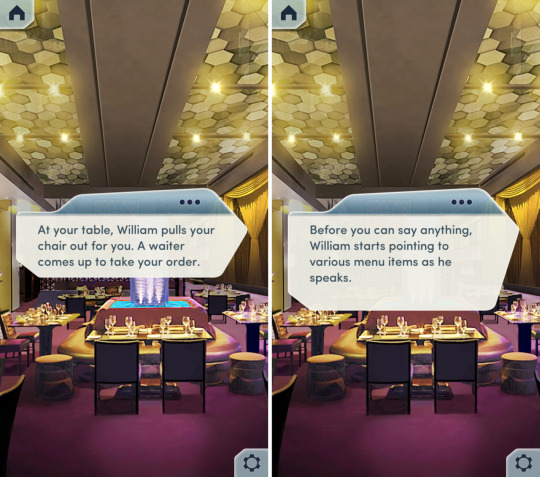
MC readily calls him out on it. “excuse u?? I can speak for myself and vote and own land and open a checking account? why are you bossing me around like I wanna choke on your dick??? oh wait”
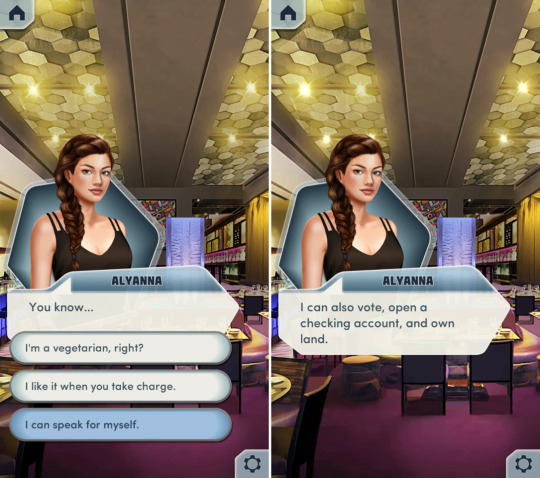
Mr. Sloan is unfazed, although he tells MC to trust him in this particular instance. We let it go begrudgingly, although to be fair, the food he orders turns out to be amazing.
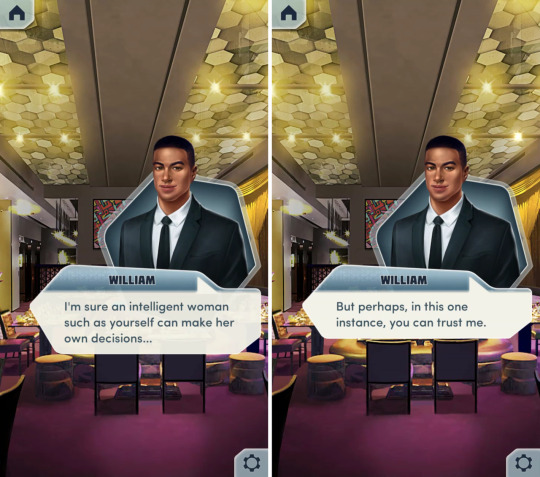
You have to admit, this kind of behavior on your first date raises a lot of red flags. Who wants to be in a relationship with a guy who decides for you without your permission?
To make sense of this, we fast forward to Book 1, Chapter 11, where something similar happens. Here Mr. Sloan returns to the cruise ship for his second date with MC. Honestly at this point I’m not even complaining because he flies back to her as soon as he can just to take her to Paris for a date??

Admittedly, he surprises her under the assumption that MC will readily agree/has nothing planned for the rest of the day herself. (Although, to be fair, surprises do have a way of ruining your own plans. That’s kind of the point!)
Here we’re given the option to tell him that he can’t expect us to leave for the Paris trip at a moment’s notice. A good option, too, since we’re trying to be as lowkey thirsty as possible we get to remind him that respect for each other’s time is kind of a thing. Besides, if you’re going to start a relationship with someone you might as well establish a list of acceptable and unacceptable bullshit between the two of you early on, right?

When MC calls him out, his reaction is surprising; he looks positively contrite. The panels above show him acknowledging his mistake, his tone completely different from when we first call him out in Book 1, Chapter 3. What’s more, he inadvertently reveals that he’s been listening to MC, after all, particularly about that advice to “let loose”. We don’t see him dance until Book 1, Chapter 18 (refer to reason 3 in Part 1), but it is clear even at this point how he’s making an attempt to match MC’s adventurousness and spend more time with her.
Just to put that in perspective, it’s useful to remember that he’s a CEO. In that particular line of work there is very little room for anything messes with plans, blueprints, and established timelines. That he is willing to make time for MC despite his busy schedule (because those meetings were probably scheduled months in advance and rescheduling them would be hell) says something about how much he must really consider being with her as his priority.
What I really want to underscore is how these separate chapters show us Mr. Sloan’s learning curve when it comes to romancing MC - and it’s clear he learns pretty darn fast. I had misgivings about his reaction to us calling him out on his take-charge attitude in Book 1, Chapter 3 but I like how it seems to have been deliberately written that way so we can see how he learns from it several chapters later.
He gets even better at it by the time we reach Book 2, Chapter 16, the night when he proposes to MC for the second time. He surprises her when he shows up at Nomade, and what do you know, this time he directly asks if she has plans for the evening before inviting her to Casablanca.

Did you see that? Yes, that’s character development.
5. Because Mr. Sloan is simply the best kind of life partner anyone can possibly ask for. Book 1 Chapter 18 reveals a lot about what we can expect from him as MC’s husband. As I’ve pointed out in reason 1 of Part 1, one of the things I really like about him is his foresight and how it always comes into play even in his relationship with MC, consistent with his work as an investor. He’s always thinking long term.

One of the ways the conversation with Mr. Sloan in this chapter is so distinctively him is that he doesn’t talk much about feelings anymore. That’s not to say he doesn’t reiterate them, because he does, at least in the beginning. But they don’t take up most of the things that’s said between him and MC.
What do they talk about, though? Well, they talk about important questions in relationships, like where they will live in the future and what MC thinks of having kids (in fact, this surprises MC herself, as shown in the panels below). Perhaps not everyone will agree with me on this, but the way I see it is that this man is already absolutely certain of what he feels for MC. As far as he’s concerned, the dating phase is done, which is why he’s already set that aside and moved on to the next one: planning their future together. Whatever MC’s misgivings might be, it’s clear at this point that Mr. Sloan has given their relationship some pretty serious consideration.
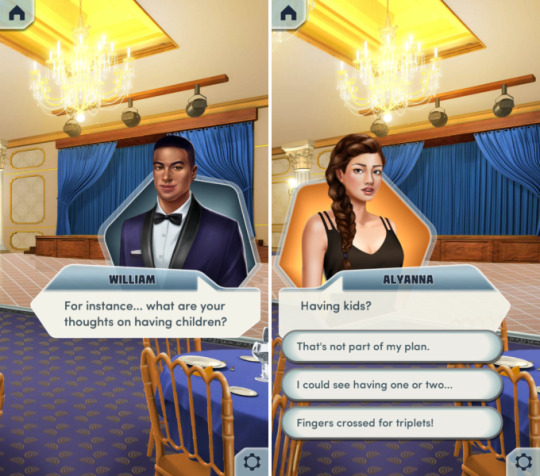
It’s also worth noting that when MC asks him what he thinks their future will look like, he tells her that she can tell him what she wants and he will just make them come true.

In Book 2, Chapter 8, he even goes as far as asking her, “hypothetically speaking”, where his next vacation house should be located.

Going back to reason 4 above makes it easier to see how Mr. Sloan’s character develops - he changes from someone who will make MC’s dietary choices for her to someone who looks at her as a partner with whom he can plan a future life together. It’s these small things, these subtle changes in his words and actions that tell us he’s been paying attention and learning from his interaction with MC. That perhaps their time together has actually changed him, and as cliche as it sounds, maybe even changed him for the better.
6. Mr. Sloan owns a winery. That’s literally it; who the hell turns down someone who owns a goddamn winery? Oh, and by the way? He names a bottle of wine after MC.
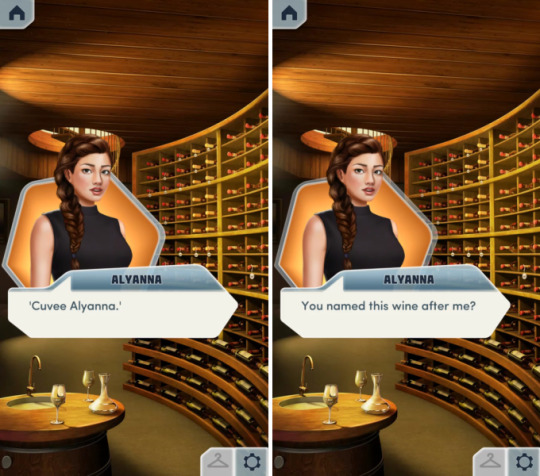
7. Because he knows his priorities, and it’s MC above anything else. In Book 2, Chapter 9, Rashad, Mr. Sloan’s very own best friend, warns MC that there’s a very big price to pay in being in a relationship with a CEO.

As hostile as Rashad delivers his warning, he makes a very valid point. Book 2, Chapter 9 perfectly underscores this when MC asks Mr. Sloan to go back to bed with her but he sadly turns her down, telling her he has to prepare for another business trip.

Before the chapter draws to a close, MC considers this silently, wondering if Rashad is right for warning her after all.
Surprisingly enough, in Book 2, Chapter 17, we see Mr. Sloan bite the bullet and very openly discuss Rashad’s thoughts on his relationship with MC.
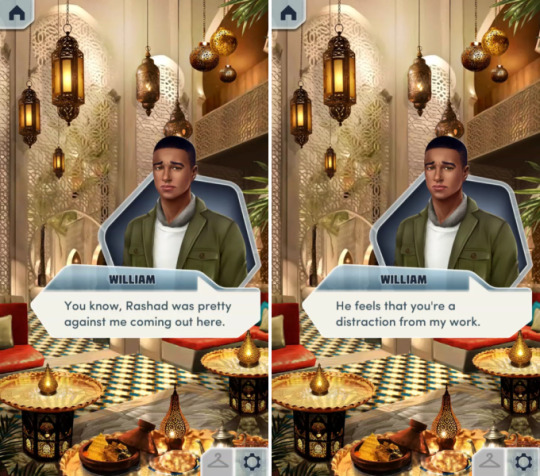
I admit I did not see this coming; I thought it would be one of the things they’d conveniently overlook to give some sort of disadvantage to a potential relationship with Mr. Sloan. I mean, at least give the other suitors a fighting chance, Mr. Sloan?? lmao~
True to his nature as a businessman who most likely considers all angles of a particular negotiation before proceeding, Mr. Sloan talks to MC about his work-life balance and asks her what she thinks of it.
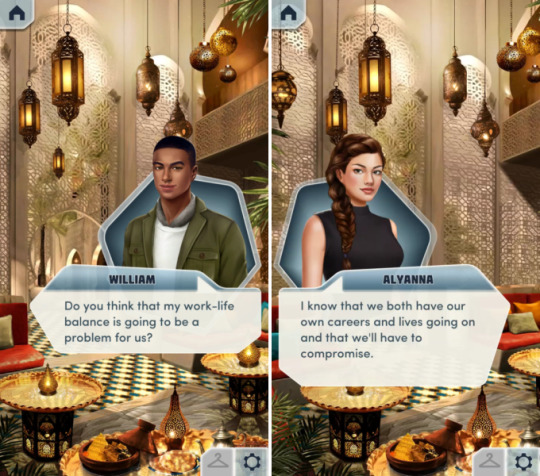
We try to be subtle about it, but suddenly Mr. Sloan says these magic words: “Consider it gone.”
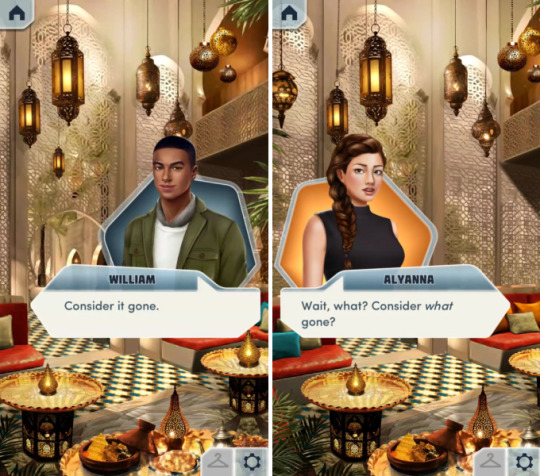
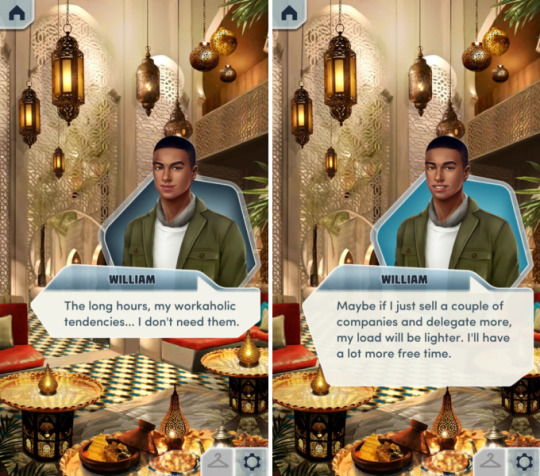
Even MC does a double-take. Because… well, he can’t do that! He can’t just set aside his businesses for MC! Excuse me?? That’s like… totally sweet and romantic I cannot believe?????


I swear I didn’t cry. Maybe.
8. Because his proposals are so on point! Mr. Sloan proposed twice to my MC Alyanna because I’ve been loyal to him since the first book hahaha. Let me just spend some time on these proposals because they’re both beautiful and so well-thought-out.
Book 1, Chapter 19. First proposal.
I didn’t realize this until I was almost done with this list, but all the points I’ve listed up until now are mentioned and/or alluded to in his marriage proposal. I don’t want to gloat (who am I kidding, I totally do), but I can say with 100% confidence that our businessman’s first marriage proposal is the best of them all.
For example, he gather’s MC’s family members to witness the whole thing. One of the key themes in Rules of Engagement is family, and the first book does a good job at letting us see the strong bond between the four siblings. This being said, I thought it was very smart and thoughtful of Mr. Sloan to call them to witness what is arguably one of the most significant moments in MC’s life. It appears he knows what’s important to MC and he considers them important to him, too.

He also talks about how being with her has changed him, particularly about him dancing, as I’ve discussed in Part 1. In the left panel below, he mentions how MC makes him laugh, but also that she calls him out, unlike other people who appear to be intimidated by “Mr. Sloan from magazines”. I found this to be a nice touch; it gives the feeling that we’ve gone full circle and the time spent with him really helped build up their relationship.
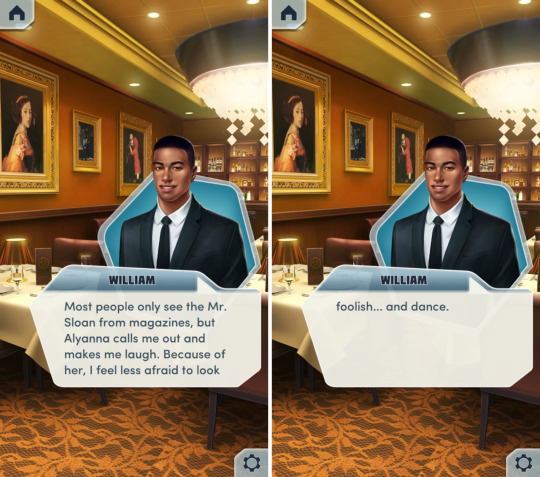
The (intended?) symbolism is a nice, touch, too - Mr. Sloan proposes in the same place where he first met MC. If we go back to Book 1, Chapter 2, his very own words on the night they meet is “I’m not proposing that we get engaged. I just want to take you out for a romantic night. No strings attached.” Funny how he comes to propose many chapters later, at the very same restaurant and to the very same woman whom he once said those words to.
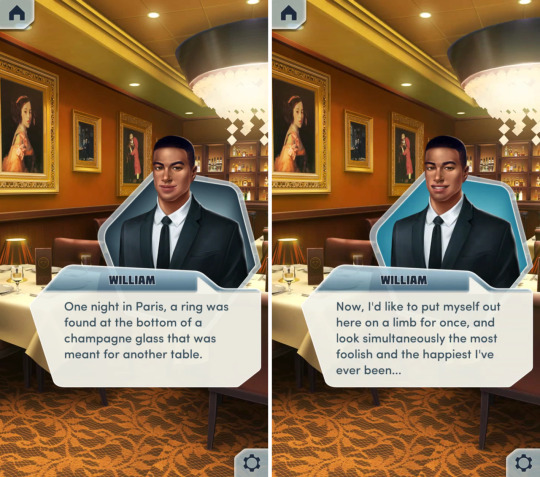
This is equal parts adorable and amusing.
In the left panel above, Mr. Sloan recalls the unfortunate (but absolutely hilarious) mix-up during his date with MC in Paris. It’s funny because you can tell he’s been thinking about that little mishap since it happened, and yes, his thoughts all along must have been, “Holy shit that was very embarrassing I swear I will never do that in my life.”
And yet here he is, several weeks (?) later, proposing in front of MC’s family and friends and possibly other people from the cruise. And you know what? He does it anyway. He braves his embarrassment and his discomfort anyway, because he’s decided that it’s okay, because it makes him the happiest, too.
It’s also interesting how he says, “Now, I’d like to put myself out here on a limb for once.” If we want to be very technical about it, “putting someone out on a limb” means “being in a dangerous position” or “doing something risky”. Well, okay, you say. Proposing is inherently risky, isn’t it, because there’s always a chance you’ll get turned down? Mr. Sloan is just acknowledging that fact.
Except, you have to remember he’s a businessman. Taking risks is literally what he does for a living. And if his wealth is any indication, he’s a very successful risk-taker. I actually interpret this as a very subtle way of him telling us how compared to closing business deals, he considers proposing to MC as probably one of the riskiest things he has ever done in his life hahaha.
Book 2, Chapter 17. Second proposal.
I was kidding; of course both of Mr. Sloan’s proposals to MC are better than the others! ;) If anything, his proposal in the Sahara is even better than his first one, because not only does he mention the moments they share together, he also mentions the times they don’t - and how even those form part of the reasons why he wants to spend the rest of his life with MC.
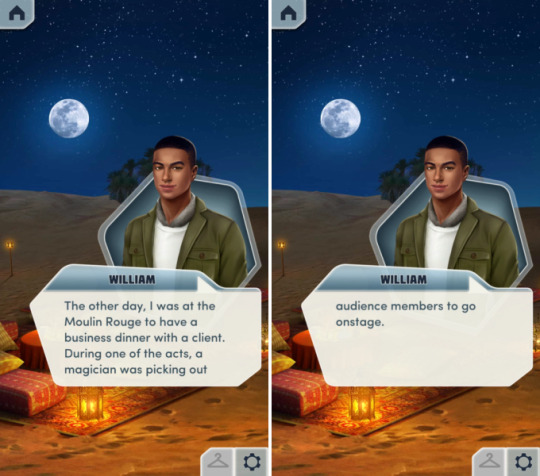

The four panels above show just how much MC has changed him, and I adore it.

But, of course, just to be fair to Mr. Sloan, we tell him this isn’t necessary. My MC isn’t here to impose anything on him, so she tells him he doesn’t have to change for her. He gives what is arguably the best response, as shown in the panels below.

Thank you, Mr. Sloan, for wanting to be that person who will dance with me in my lame black dress in a piazza in Venice. *wipes tears*
The rest of his proposal is absolutely magic, just like how he sees MC in his life.

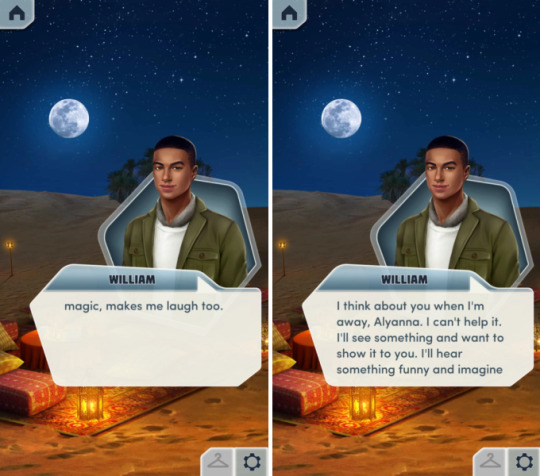

I told myself I would let the panels above speak for themselves but ohmygod can we just acknowledge how much punch they pack because you can definitely tell that Mr. Sloan is speaking from the heart. This is exactly their love story. It’s a simple tale of two people finding someone whom they can dance in a piazza with, whom they constantly think about even when they’re far apart, and whom they’ll willingly make sacrifices for, because they put them as priority above all others.
It’s not all that complicated, but then again whoever said the best love stories need to be? ;)
BONUS!
9. This isn’t exactly a reason but I just wanted to add that Mr. Sloan planned the second proposal for weeks! Planning is his thing, okay, he’s good at that and he has plenty of money to show for it lmao. Here’s his hella cute reaction when we point this out (MC: “You’ve been planning this for weeks?”).

Dear @ god just please let me marry him already??
Also hey isn’t it funny that Mr. Sloan proposed to us in the Sahara? ahahahaha was our thirst that obvious?????
—————————————————————————
Okay, that’s it, folks! This took a while but I hope you enjoyed this because I did! Thanks for reading and please don’t hesitate to shoot me a holler if you wanna squeal about Mr. Sloan! ;)
#william x mc#rules of engagement#william sloan#playchoices#choices stories you play#reasons why marrying william sloan is the best decision of your life#i'm so fucking tired goddammit william i swear if i didn't love you as much as i do#i probably missed some points but what part of mr. sloan is perfect do you not understand#fucking finally i can focus on school because this is done ahahaha#leaving something unfinished stresses me out#seriously tho i can't wait to marry william sloan let me live pb!!#I have feelings
84 notes
·
View notes
Text
# 1 In the Aeroplane Over the Sea - Neutral Milk Hotel
In the Aeroplane Over the Sea is one of the greatest albums I have ever had the pleasure of listening to. Nothing will change that. And here’s the beautiful thing about this, you can disagree. You can say that it’s completely overhyped and overrated and you can be right but music, much like life, is subjective and knowing that, nothing can take away the admiration and love I have for this project.
I don’t always feel the need to defend my position but this album is a curious case. In the Areoplane Over the Sea is one of the most, if not the most, notorious albums on the internet because of its position as one of the most, if not the most, famous indie albums ever made. That fact ultimately changes how if you are going to try to get into the album now. It has these expectations levied against it, whether you initially want the album to be great or to suck. And that is part of why I put it on the classics list, because it is an album whose fame will most certainly affect the way you listen to it.
However, I was lucky enough to hear the album before being introduced to any of the baggage. I heard it at an early time in my life, a time when I was still starting Infamous on ps3, when I stilled played for the same soccer team I joined in second grade, when I still thought that my phone was unable to send texts (a wonderful story, the first time I ever got texting on my phone, I did not know that I had to delete messages. I was actually texting a girl I had a crush on when I stopped getting anymore texts (it cut off mid conversation) and I thought she had gotten mad and stopped talking to me. And for the next year and a half, I was simply convinced that I just never got a text from any person ever, only possible because I had about zero friends at the time. Never saw or heard from the girl again but I do get texts now so it’s a net win for me in the long run). My musical palate was different back then, too. I was past the pop punk phase, into heading toward a feaux-deep, “this is so deep” phase. The majority of my library were bands like The Strokes and The Arctic Monkeys, mostly poppy, modern rock. Lines like, “I’d probably still adore you with your hands around my neck/ or I did last time I checked” were the peak of poetic potential.
Needless to say, I was totally unprepared to appreciate, or even like, Neutral Milk Hotel the first time I heard it. It was shown to me the way almost every album back then was, by my older brother Kiet. He walked into the living room while I was playing the aforementioned PS3 game, Infamous (a great game and also the first game I ever 100% completed so it will always hold a special place in my heart) and told me that he had just heard one of the best albums he heard in a while. “Everything runs together and it’s just so good,” he said, and since we were both raised by a dad who worshiped the track seven through sixteen run on the Beatle’s Abbey Road the same way he worshipped the Buddha (both are unfathomably groundbreaking in their respective fields and that fact was ingrained in both of us as kids), so the fact that the tracks ran together instantly necessitated a listen. I made him burn me a CD, because back then we weren’t allowed to use the computer too late (though I often did to play League of Legends because I was probably addicted and also lonely and thirteen or fourteen like, that’s kind of the point of being that age) and played the album for the first time on my CD player alarm clock.
I don’t remember my initial reaction but I also don’t remember hating or loving the album. I remember disliking Jeff Magnum’s voice, which made sense seeing how I was a stupid petulant shitbaby who knew nothing of the world used to singers like Alex Turner and Julian Casablancas, guys whose smooth voices sounded like they were made for music. I also remember being thrown off by the music, it was strange and folky but it also had horns and big grand moments which I thought wasn’t supposed to be happening together and ultimately I was confused. I was also intrigued and, most importantly, I was totally incapable of putting the album down. I was entranced, it was 1 AM and I was mindlessly eating the Spicy Nacho Doritos that was In the Aeroplane Over the Sea.
It’ been over half a decade since that first listen and I can confirm that I do really really fucking love this album. From the first those opening guitar strums to the crumpling of paper that sounds the end of the album, there is nothing that I can bring myself to dislike. Sure, there are a few low points, the instrumental tracks of Fool and Untitled being some and the song Ghost being another. But even these tracks are ones I adore and fit the album perfectly well. Without the long droning horns on Fool, the quick cut and burst of energy at the beginning of Holland, 1945 isn’t as pronounced. Without Untitled we don’t get the haunting introduction of Two – Headed Boy (Part 2) that is cut through and dissipated by Jeff Magnum’s nasally, desperate voice, an effect that gives the final song a sense of clarity and bareness that the other tracks don’t have. And those are the weaker tracks. There is so much this album does right. The music is everything and everywhere, it’s galloping guitar and these grand horns and bombastic drums but then there’s lonely, acoustic guitar with these quieter, tame horn and spirits swirling in the background then the swirling turns into a roar and threatens to swallow everything then, oh shit is that bagpipe what’s happening. The sounds are confusing and can be a mess but they are beautifully constructed and layered and are accompanied by Magnum’s songwriting which is just impossibly insane. If we take the “level” of fiction theory that I have been running with that pictures the amount of fantasy, the level of separation from reality, as vertical height, most work I enjoy is right at telephone wire level. It’s high up, higher than I’ll ever reach but it’s nice to know that if I had to throw something up there I probably could. In the Aeroplane Over the Sea is soaring among the birds, below the clouds but untethered to reality by any measurable standard. They are hopeful and sweet and sexual yet desperate and sad and scared all at the same time, all the time being haunted by the memory of Anne Frank, whose diary shook and haunted Magnum throughout most of this album. Just look at Two Headed Boy (Part 1) to see the mood the album creates: “Two headed boy/ There’s no reason to grieve/ The world that you need is wrapped in gold silver sleeves/ Left beneath Christmas trees in the snow/ And I will take you and leave you alone/ Watching spirals of white softly flow/ Over your eyelids and all you did/ Will wait until the point when you let go.” I previously described as Magnum’s voice as desperate and that’s true in different ways on the album. Sometimes, as it is in the passage above, it’s a quiet desperation, a prayer or birthday wish, and sometimes, like the “Say what you want to say” on oh comely, it is biting and bone-chilling, nasty in its sadness.
And before I go I just want to talk about the best song on the album and the rare song that I think is a six star, Two Headed Boy (Part 2). The song does everything that the album does as a whole but at the top level. “Daddy please here this song that I sing” (desperation), “Long ago wrapped in sheets warm and wet” (sexual), “And in my dreams you’re alive-” (happy, hopeful) “and you’re crying” (sad again). “God is a place where some holy spectacle lies” is a line that pushes me further and further into my deep interest in Christianity and understanding how so many people in this world have grown up in while also being a line that haunts my bones until I hear “God is a place you will wait for the rest of your life” and every last muscle of my heart slows to a crawl as it waits for the last lines. “Two headed boy, she is all you could need/ she will feed you tomatoes and radio wires/ and retire two sheets safe and clean/ but don’t hate her when she gets up to leave.” Then Magnum leaves and you are left to wait in the dark and quiet.
You can disagree with everything I just said and be right. In that case thank you for reading. You can think that everything I read into is just part of the problem of the cult surrounding this album and in that case I thank you for getting this far. But at the end of the day, music is subjective and based off what it does for me. What it does is makes me love music. I will enjoy every moment on this album for the rest of my life.
3 notes
·
View notes